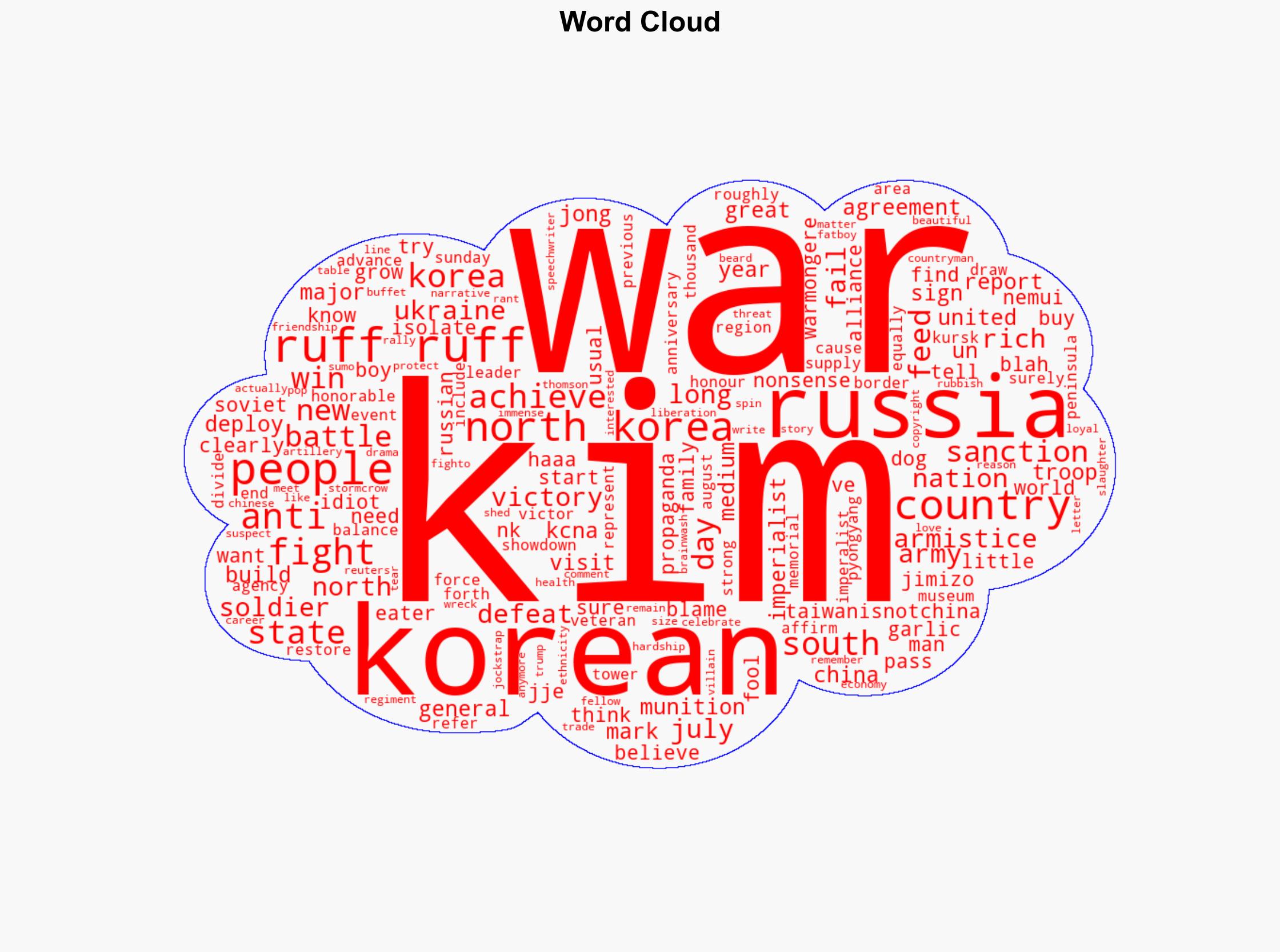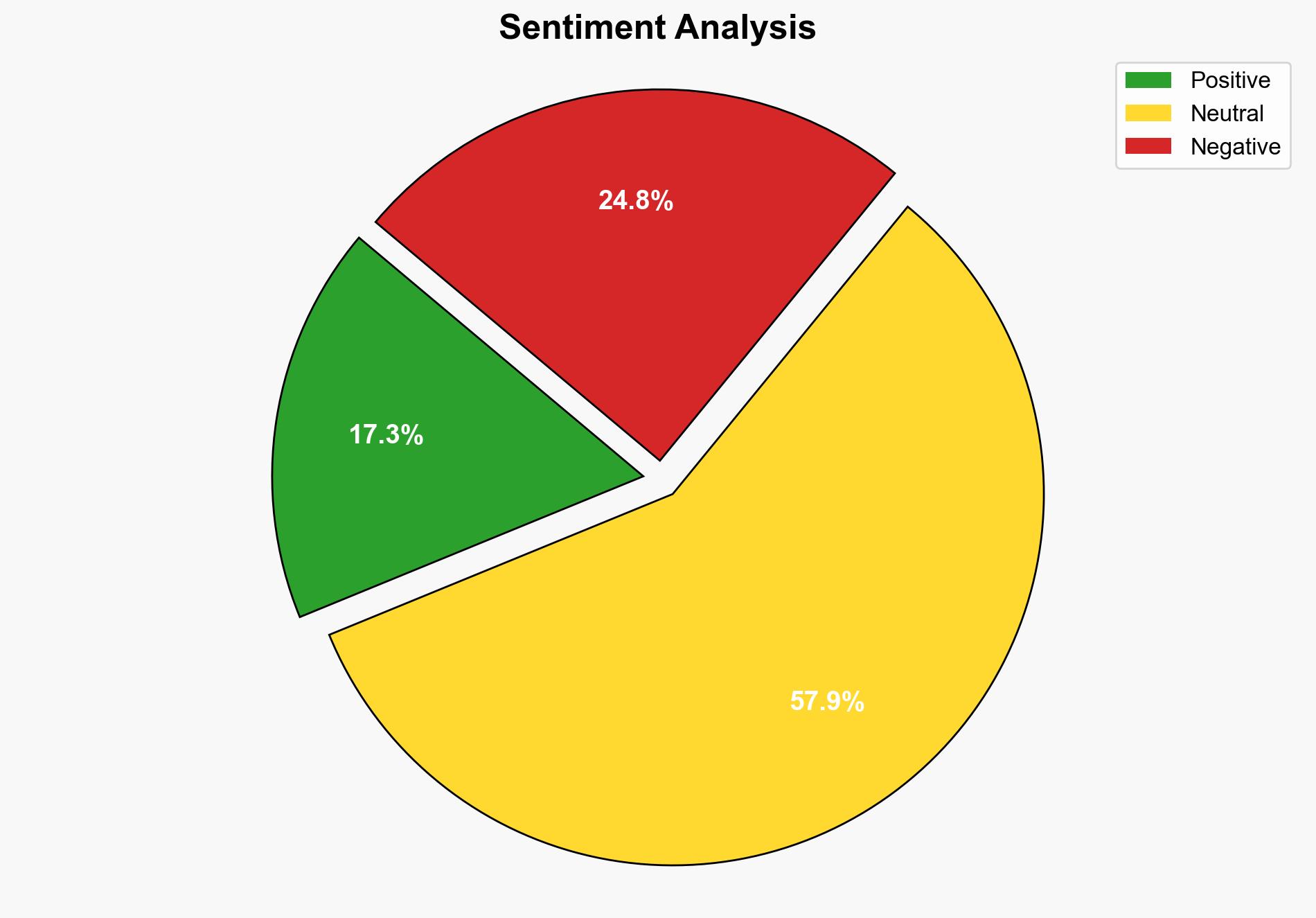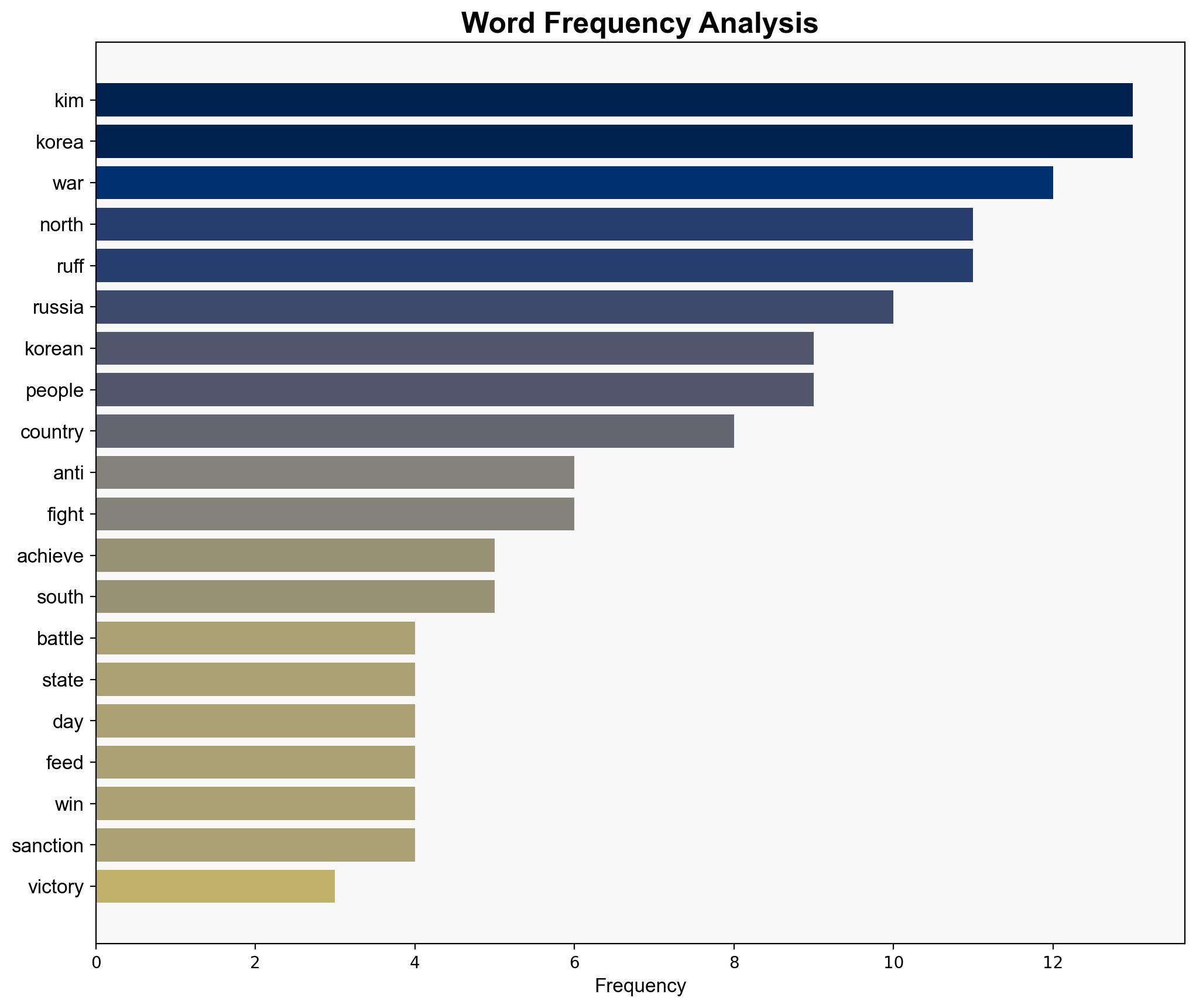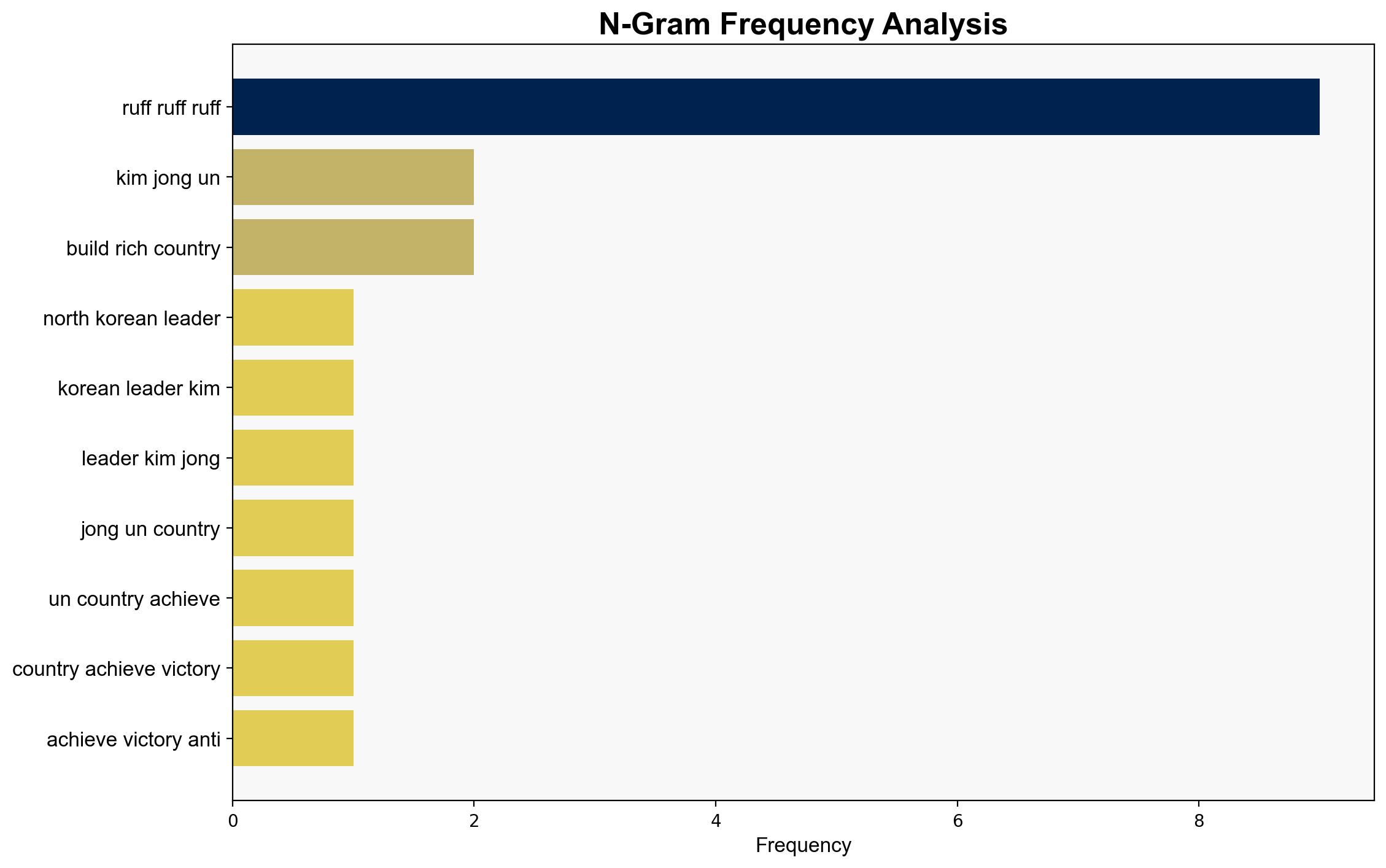North Korea’s Kim vows to win anti-US battle marking Korean War anniversary – Japan Today
Published on: 2025-07-26
Intelligence Report: North Korea’s Kim vows to win anti-US battle marking Korean War anniversary – Japan Today
1. BLUF (Bottom Line Up Front)
The most supported hypothesis is that Kim Jong Un’s rhetoric is primarily aimed at reinforcing domestic unity and regime stability rather than signaling an immediate escalation of hostilities with the United States. Confidence level: Moderate. Recommended action: Monitor North Korean military movements and regional alliances while enhancing diplomatic channels to reduce tensions.
2. Competing Hypotheses
Hypothesis 1: Kim Jong Un’s statements are primarily for domestic consumption, intended to bolster nationalistic sentiment and regime legitimacy amidst economic challenges and international isolation. This aligns with historical patterns of North Korean rhetoric during significant anniversaries.
Hypothesis 2: The rhetoric signals a potential shift towards more aggressive military posturing, possibly in coordination with Russia, as a response to perceived threats from the US and its allies. This could involve increased military exercises or provocations.
Using ACH 2.0, Hypothesis 1 is better supported due to the lack of immediate military mobilization or new strategic alliances that would indicate preparation for conflict escalation. Historical context and the timing of the statements suggest a focus on internal propaganda.
3. Key Assumptions and Red Flags
Assumptions for Hypothesis 1 include the belief that North Korea’s economic conditions necessitate internal focus and that Kim’s rhetoric is a continuation of past patterns. A red flag is the potential underestimation of North Korea’s willingness to engage in military provocations. For Hypothesis 2, the assumption is that North Korea perceives a strategic advantage in aligning with Russia, which lacks corroborative evidence of substantial military cooperation.
4. Implications and Strategic Risks
If Hypothesis 1 holds, the primary risk is continued regional instability and potential misinterpretation of North Korean intentions by neighboring countries. If Hypothesis 2 is correct, there is a risk of military escalation, particularly if North Korea seeks to leverage its relationship with Russia. Economic sanctions and diplomatic isolation could further exacerbate tensions.
5. Recommendations and Outlook
- Enhance intelligence gathering on North Korean military activities and regional diplomatic engagements.
- Strengthen diplomatic efforts with regional allies to ensure coordinated responses to potential provocations.
- Best-case scenario: North Korea reduces aggressive rhetoric and engages in dialogue. Worst-case scenario: Increased military provocations lead to heightened regional tensions. Most likely scenario: Continued rhetorical posturing without significant military escalation.
6. Key Individuals and Entities
Kim Jong Un, North Korean military leadership, Russian government officials.
7. Thematic Tags
national security threats, regional focus, geopolitical strategy, military posturing





